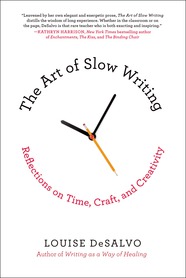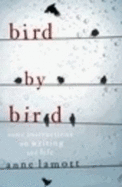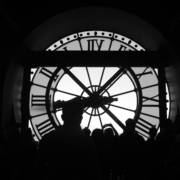 As long-time readers of this blog know, I am a total story-nerd (and thank you, Shawn Coyne, for explaining this label to me). The book about writing that I have been dragging along in my travels over the last couple of months — reading it and rereading it — very, very slowly because I couldn’t bear to finish it — is Louise DeSalvo’s The Art of Slow Writing.
As long-time readers of this blog know, I am a total story-nerd (and thank you, Shawn Coyne, for explaining this label to me). The book about writing that I have been dragging along in my travels over the last couple of months — reading it and rereading it — very, very slowly because I couldn’t bear to finish it — is Louise DeSalvo’s The Art of Slow Writing.
Not just about slow writing (a topic I relish), it offers an insider’s view of the entire writing process. DeSalvo is a Virginia Woolf scholar, and has also studied the process of a diverse line-up of writers, including John Steinbeck, Sue Grafton, Colum McCann, Antonya Nelson, Nawal El Saadawi, Ian McEwan, Jeffrey Eugenides, and Anne Tyler. (She seems to have sifted through every volume of The Paris Review Interviews, finding all the best stuff.) She borrows liberally (always giving credit) from creative writers and writers about the creative process, and from time and habit gurus of all stripes. And, of course, she liberally shares her own writing process.
I can’t hope to do justice to so much good stuff, nor to share so much underlining and highlighting and marginal notes. So here’s something that spoke to me about my current writing dilemma:
There comes a time in every project when we know we’ve turned a corner. Before that moment, everything was opaque, confusing, and difficult. We wondered whether what we’re writing is worth anything. We worry that we’ll never finish. We have a lot of good material, but we don’t know what to do with it. We might have an inkling of how the piece or book will come together, but we’re not sure it’s right, and we’re reluctant to try to implement the plans we’ve germinated.
We’re working every day, but the work seems to be going nowhere. We circle around and around our subject, writing good material, and then writing material that seems not to fit — material we suspect we’ll never use but that we need to write anyway….
At times we think we should abandon the project, abandon writing. The book seems to be taking over our life….
Then, one day — and who knows when or why or how — we know the book will happen….
Most writers reach this moment. Beginning writers who haven’t yet might find it hard to trust that if they just  keep working, that time will come. This is miracle time, magic time, the move from opacity to clarity. And we can’t force this moment — the arrival of clarity — to happen; this moment takes its own sweet time. We have to show up at the desk day after day, week after week, year after year for that splendid moment to arrive. (148-149)
keep working, that time will come. This is miracle time, magic time, the move from opacity to clarity. And we can’t force this moment — the arrival of clarity — to happen; this moment takes its own sweet time. We have to show up at the desk day after day, week after week, year after year for that splendid moment to arrive. (148-149)
Just keep showing up. Keep working. Keep writing!
(And DO read this wonderful book.)
 I should have reminded you that my use of “shitty first draft” comes from Anne Lamott’s splendid writing book, Bird by Bird.
I should have reminded you that my use of “shitty first draft” comes from Anne Lamott’s splendid writing book, Bird by Bird. 

 Begin Again is the title of Grace Paley’s collected poems, and excellent advice — generally — for pursuing any creative career. (Click
Begin Again is the title of Grace Paley’s collected poems, and excellent advice — generally — for pursuing any creative career. (Click 

 keep working, that time will come. This is miracle time, magic time, the move from opacity to clarity. And we can’t force this moment — the arrival of clarity — to happen; this moment takes its own sweet time. We have to show up at the desk day after day, week after week, year after year for that splendid moment to arrive. (148-149)
keep working, that time will come. This is miracle time, magic time, the move from opacity to clarity. And we can’t force this moment — the arrival of clarity — to happen; this moment takes its own sweet time. We have to show up at the desk day after day, week after week, year after year for that splendid moment to arrive. (148-149)
 Why is it that — even without the teaching career — even without the three little girls who were underfoot for so many years and now are nearly grown — I STILL feel overwhelmed and as though I don’t have enough time to write?
Why is it that — even without the teaching career — even without the three little girls who were underfoot for so many years and now are nearly grown — I STILL feel overwhelmed and as though I don’t have enough time to write? started reading The 12 Week Year), what actions will I need to take? This week? Today?
started reading The 12 Week Year), what actions will I need to take? This week? Today?